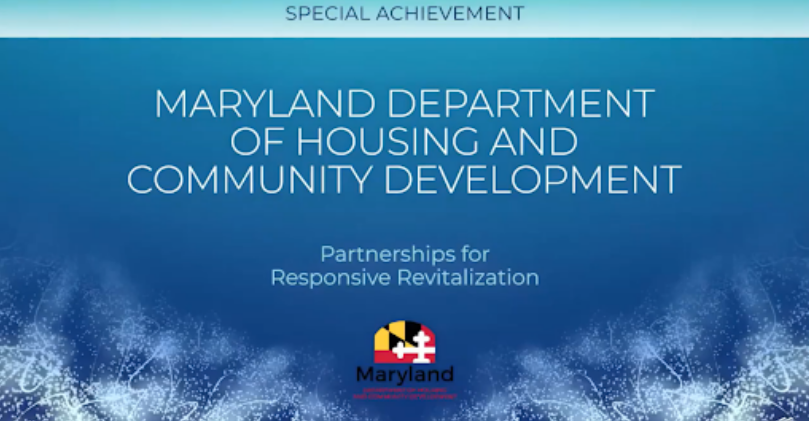Maryland Wins National Award for Cecilton Senior Village Project
Maryland Wins National Award for Cecilton Senior Village Project

New Carrollton, Md. (October 5, 2021) – Last week, at the 50th Annual National Council of State Housing Agencies Conference, the Maryland Department of Housing and Community Development was recognized and won the Special Achievement award. The department’s entry “Partnerships for Responsive Revitalization” featured a six-year undertaking known as the “Cecilton Senior Village” project.
According to the council, “NCSHA’s Annual Awards for Program Excellence identify and elevate industry best practices and encourage continued housing finance agencies innovation.” Maryland’s Cecilton project was part of 33 nationwide state housing finance agencies that submitted entries to the highly-competitive awards program.
The Maryland Department of Housing and Community Development combined funding from different and diverse programs to support two complimentary redevelopment projects that provide housing and community services to multiple generations in the Town of Cecilton in Cecil County, Maryland. The projects and the process behind them exemplify the department’s commitment to respond to local needs through strong partnerships and flexible financing as documented in a video to promote community development.
The two projects seek to address the town’s important need for affordable housing opportunities, childcare, and early education. Beyond providing homes and services, they will also support the close knit town’s passionate sense of community and local pride by bringing Cecilton’s older and younger generations closer together using the shared garden space and outreach programs developed at the early learning center.
For those projects, the department administered resources from five different state and federal programs that spanned multiple divisions within the agency. State rental housing and federal HOME funds were awarded by our multifamily housing team. The Division of Neighborhood Revitalization administered federal Community Development Block Grants and state Strategic Demolition program funding. The efforts in Cecilton were further supported with small business assistance resources through the department’s Neighborhood BusinessWorks program. The pooling of these diverse resources required intensive attention to meet the closing deadline while satisfying the various program requirements, regulations and policies.
The project demonstrates the department’s willingness to cut across traditional program lines and use federal, state, and local tools to support projects that revitalize Maryland’s communities and spark further redevelopment.